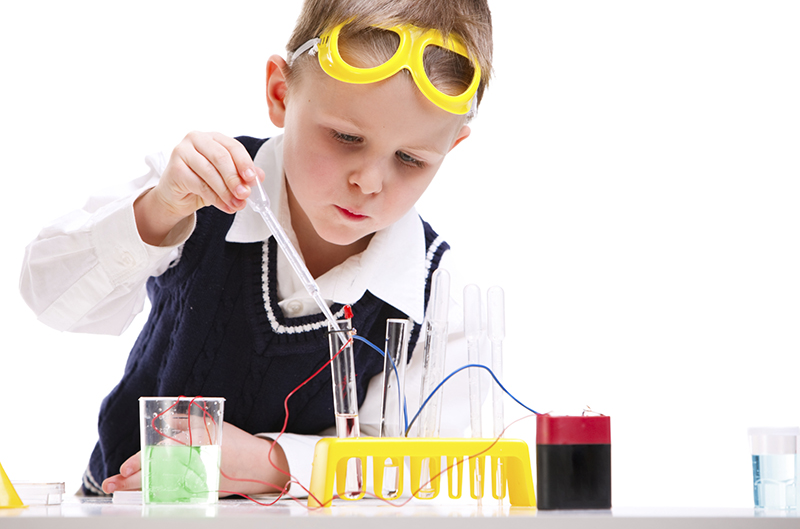
While the United States might rank only second to China in the number of scientific research publications per year, the story is different when it comes to middle and high school students! A Washington Post article from 2019 called out clearly that US students lag behind their peers in reading, science, and math. In this article, we do not intend to provide a diktat to schools or to the overall education system on how science must be taught. But we do want to enable every parent reading this article, to help their child retain and grow their science skills this summer.
Science Skills and the Summer Slide
Come summer, the fears of a summer slide in children become rampant. In the three and a half months of summer break, your child is bound to lose some of their skills. The loss is particularly significant in areas like science, math, and reading. This is very intuitive to reason with – note that all three skills need continuous practice and honing.

Coming to science skills, let’s take a step back and look again at the 5 core scientific skills:
- Observing
- Classifying
- Measuring
- Inferring, and,
- Predicting
A long break in engaging with scientific activities or academic pursuits can lead to dormancy in at least a few of the above skills. For example, your child may have excellent scientific or objective observation skills. During the summer break, they may still lose touch with inferring and predicting because of a lack of sufficient opportunities to apply them.
Also read: Help your child retain math skills this summer
What Can You Do As a Parent to Help Your Child Retain Science Skills
Summer slide is a common phenomenon and has a snowballing effect. While many parents are aware of it, they can often do very little to help prevent it fully. But wait, before you decide to put down all hopes and surrender to the phenomena as an absolute possibility, hear us out. You CAN DO a lot to help your child retain science skills. In this article we will cover tips particularly relevant to (but not limited to) middle and high schoolers alike.
Here are 7 quick, actionable tips to get you started right away:
1. Take them on regular science field trips
Field trips provide the best opportunities for children to think critically and absorb scientific principles organically. No textbook can beat seeing an underwater ecosystem in an aquarium or the planetary positions in a planetarium. Don’t we all agree, our best learning experiences have always been when we saw theories in action?
Field trips are a great way to facilitate real-world learning. Children see that what they learn in the classroom can actually help them solve the problems they see in the world around them. This can, in turn, have a direct impact on who they become as people. A 2015 study on the direct academic impact of field trips still holds relevance. A study by Emilyn Ruble Whitesell showed that middle school students who participated in science field trips through the Urban Advantage program scored better on the state science test.
2. Make your kitchen their science lab
While the schools may have elaborate testing and learning opportunities in formal science labs, your kitchen too is a good substitute! Experiment with simple ingredients with your child to help them appreciate scientific principles in action. There are several scientific experiments your child can try with simple things like candy, sugar, eggs, ice, etc.

Here are some examples to get you thrilled in the next 10 seconds:
- Your child could make their own pH indicator using an indicator solution from red cabbage or another pH-sensitive food. They can then use the indicator solution to experiment with the acidity of common household chemicals. Check out the step by step process here
- Making butter from cream using mechanical tools is a simple way to see centrifugal force in action
- Making treacle toffee is a great way to learn about the change of states. From solid to liquid to solid again
- Glue is something children use very often. Let them use simple kitchen items like milk, baking soda, vinegar, water to make their own glue. See the detailed process here
You can find a zillion different ideas for kitchen science experiments on the internet. Just a few clicks, and you can explore almost one experiment for every single day of the summer break. You can also check out this STEM-powered Kitchen Science Projects book for more ideas.
3. Let them theorize and reason
Encourage your child to classify and match the scientific theories they’ve learned at school to daily life phenomena. These could start by categorizing animals they see around – what’s an arboreal animal and what’s an aerial? Or categorizing winds into gales and zephyrs just based on the intensity (don’t bother if they are wrong). All they need to keep in touch with is that science is all around them.
The best way to do this is to observe everything and try to have a scientific theory and a reason to explain it. So the next time, you’re watching the stars on a summer night with them, ask them to identify constellations. And when you go to the beach, ask them to reason why tides happen and let them observe from a distance, the difference if they can when the tide hits!
4. Lead by example to foster scientific mindedness
The precedent that you set as a parent goes a long way in your child building and retaining a scientific mindset. Throughout the summer, you’ll be the closest to them and your approach to science could be the determining factor. Don’t believe us? Try the following to see the difference:
- Reason with your child when they ask the ‘why’ questions by using a scientific theory as the baseline
- Tone down your scientific explanations to a level that remains interesting and easy to understand for your child
- Demonstrate a curiosity for scientific inquiry into everyday happenings. Ask lots of ‘WHYs’ and look for answers on the internet while making your child participate
5. Get them a private tutor to boost their science skills
With all good intent and effort, you will still have your limitations as a parent. To your rescue, we have a solution that is almost fail-proof. Get your child a private science tutor to help them retain science skills (and, in fact, grow them) this summer. Here are some reasons why hiring a private science tutor could be an absolute game-changer:
- The tutor can tailor-make a science course for your child. They can stress the areas your child may generally struggle with and convert them to their strengths
- Discipline is the key to summer learning and more so when it comes to science. A tutor can instill that sense of routine and discipline by ensuring regular learning and practice
- You can choose timings based on your and your child’s convenience. An at-home private tutor is usually the best choice for the summer months
- A private tutor who comes in with the right experience and qualifications can prepare your child in advance for the upcoming term at the school
As you go about this idea, here’s a quick time-saving tip. Don’t squander your precious time going through LinkedIn and Craigslist or waiting for a friend’s referral. Just log on to Talentnook.com and start browsing through hundreds and thousands of private tutor profiles. You can shortlist based on your budget, timings, and other criteria and also request free demo lessons. Based on your child’s preference, you can choose from both offline and online modes of instruction. It can’t get easier than this! We have helped thousands of students in the US to realize their full potential. From science to art to piano and to learning Spanish and algebra, you name it – we’ve got you covered at Talentnook!
6. Discuss with them the scientific developments in the world
A March 2022 article’s headline read: “Hubble space telescope spots oldest and the farthest star is ever known.” Its light twinkled some 900 million years after the Big Bang, astronomers say. Got curious? That’s how your child will feel when they will read or hear about it.

While all the above ideas rely on your child’s active participation, this one is more about vicarious learning. Or let’s simply say motivation is the fuel that your child needs to retain science (or any other subject skills). Talking about recent happenings in the world especially in the field of science to keep them interested in the subject. The ‘wow’ factor will help them work on their science skills unknowingly as they will indulge in more and more scientific inquiry.
7. Get them to teach science
Lastly, a great and offbeat way to learn is to teach. Yes, you read that right! Get your child to teach their younger sibling, cousin, or even a friend of their age. While preparing for that mock class where they get to be the teacher, they will first learn themselves.
This learning is often in a way that prepares them to answer the most basic questions they expect to be asked. This in turn leads to an unparalleled level of understanding of core concepts broken down in their simplest form. What’s better? This role-play could be a great way to use all the free time of the summer holidays. It’s going to be fun and learning – all rolled into one! Some cities also have interest groups where children get to conduct knowledge-exchange sessions. They are modeled on the same principle – to teach is to learn!
We hope that you’ll utilize at least some of these ideas to help your child have a summer more productive than ever. For more such articles on parenting, homeschooling and test prep resources for your child, explore our blog. Happy summer holidays!